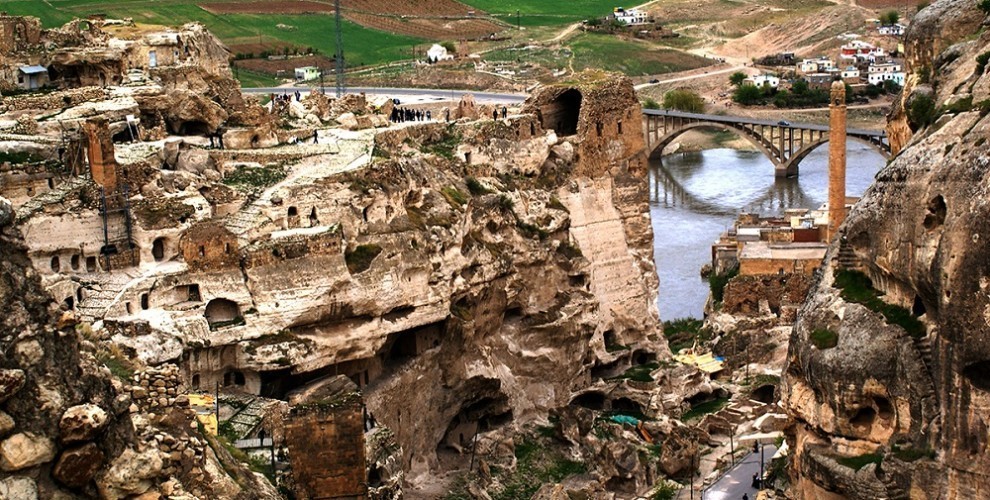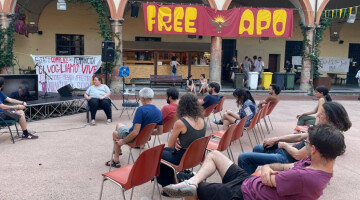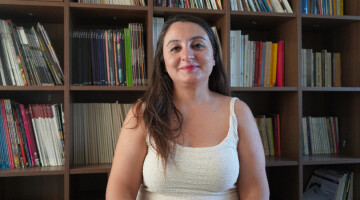The Initiative to Keep Hasankeyf Alive released a statement regarding the European Court of Human Rights rejecting an appeal for conserving Hasankeyf.
Describing the ECHR verdict as “an act of ignorance and irresponsibility” the statement signed by Ercan Ayboga said the following;
“Yesterday the European Court for Human Rights (ECHR) has rejected the appeal for conserving the archaeological site Hasankeyf and the surrounding Tigris Valley which is threatened by the Ilisu Dam and Hydroelectric Power Plant Project in the Kurdistan region of Turkey. The ECHR has argued that there is not an universal individual right of access to cultural heritage in the convention of the European Convention on Human Rights agreed between the member states. Thus the court unanimously ruled that the appeal is inadmissible.
The decision of the ECHR is more than regrettable, it is an evaded responsibility in order to save the 12.000 years old Hasankeyf and the surrounding Tigris Valley which have an outstanding universal value. This cultural and natural heritage site - inhabitated continously - is inarguably one of the most important heritage sites in Turkey, Middle East, and Europe and is much more valuable than any economic investment. In our views with new necessary excavations – it could be excavated for 100 years maybe - it has the potential to change the writing of the neolithic and antique period and it is likely more important than Cappadocia, Ephesus and Troy.
A decision by the ECHR against the flooding of Hasankeyf, could have triggered discussions in Europe for better legal conserving cultural heritage sites and the access to them by people and it could have pressured the government of Turkey to change its approach on the Ilisu Project - one of the most controversial dam; it would destroy also livelihoods in Iraq and the UNESCO heritage site of Mesopotamia Marshes - and to reach higher international environmental and social standards.
The ECHR could have taken a decision for conservation of cultural and natural heritage as well as the livelihoods of more than 80.000 people relying on improved international conventions and standards at UN and other international organizations in the last years. For example the UNESCO considers access to cultural and natural heritage as a basic human right and also a right to education. Or in March 2017 the UN Security Council approved a resolution which considered destruction and smuggling of world heritage sites on purpose as an act of terrorism.
A big question for us why the ECHR waited 13 years in order to state that it is inadmissible for the case of Hasankeyf. Today the construction of the Ilisu Project has achieved a high implementation, while 8-10 years ago almost nothing had been constructed. Has the ECHR read all the documents and arguments of dozen of civil society organizations from Turkey with which they supported the five complainers from West of Turkey: Prof. Dr. Zeynep Ahunbay, Prof. Dr. Oluş Arık, Prof. Dr. Metin Ahunbay, Avukat Murat Cano and Özcan Yüksek who appealed to the court in 2006.
It is a shame that the ECHR has avoided to take any responsibility. In a period when the justice system of Turkey has started not to exist any more it could have given support to many people at the Tigris River and in all over Turkey campaigning for defending their livelihoods and heritage and against destructive and exploitative investment projects. However our struggle will continue.
What we criticize in substance is that European institutions claim to have high democratic standards, but are not able to take responsibility in a crucial case like Hasankeyf and the Tigris River.”















